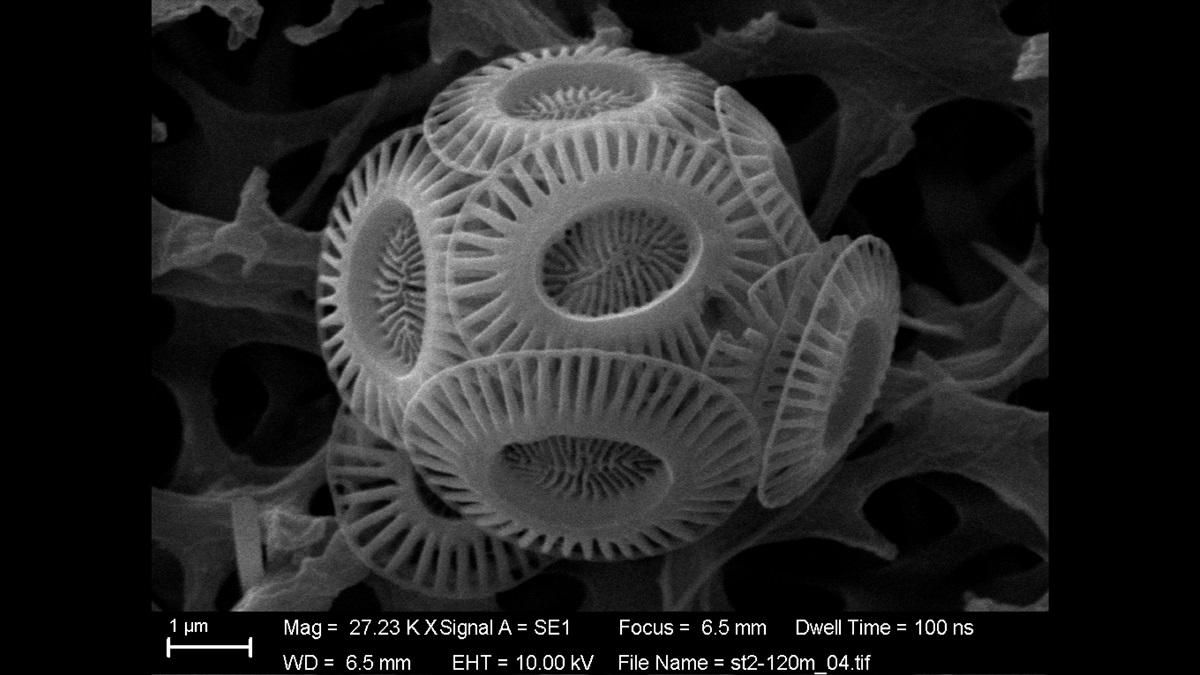Understanding the Calcium Carbonate Cycle in the North Pacific
Using data collected from Hawaii to Alaska, a new study involving ICTA-UAB researchers sheds light on calcium carbonate cycling in the ocean, an understudied component of the global carbon cycle.

Organic carbon and calcium carbonate are two critical components of the ocean’s carbon cycle. Organic carbon originates mainly from phytoplankton photosynthesis, which is part of a complex biological pump. Calcium carbonate, meanwhile, largely derives from shell-building organisms like coccolithophores, foraminifera, and zooplankton (pteropods). Yet how or if the calcium carbonate cycle interacts with organic carbon in the North Pacific is not well understood.
In a new study involving ICTA-UAB researcher Patrizia Ziveri and Sven Pallacks, scientists used data from a 2017 summer expedition that visited five stations stretching from Hawaii to Alaska. They used advanced experimental tools, including high-resolution carbonate chemistry; conducted in situ dissolution experiments with carbon-13 as the tracer; and took particle flux measurements.
The results showed that organic carbon and calcium carbonate cycles are inextricably linked. The authors found that shallow calcium carbonate dissolution in the ocean is tied to organic carbon consumption from grazing zooplankton and respiring marine microbes. The data showed that all organisms that produce calcium carbonate also generated associated organic carbon. In addition, they found alkalinity partitioning between the shallow and deep oceans is due to a combined production-respiration-dissolution cycle. The researchers note that the shallow alkalinity cycle could be a vital component of the carbon cycle.
The conclusions of this study highlight an understudied aspect of the marine carbon cycle, and clarification of carbon transport to the deep ocean has implications for carbon storage around the globe, according to the authors.
(Global Biogeochemical Cycles, https://doi.org/10.1029/2022GB007388, 2022)